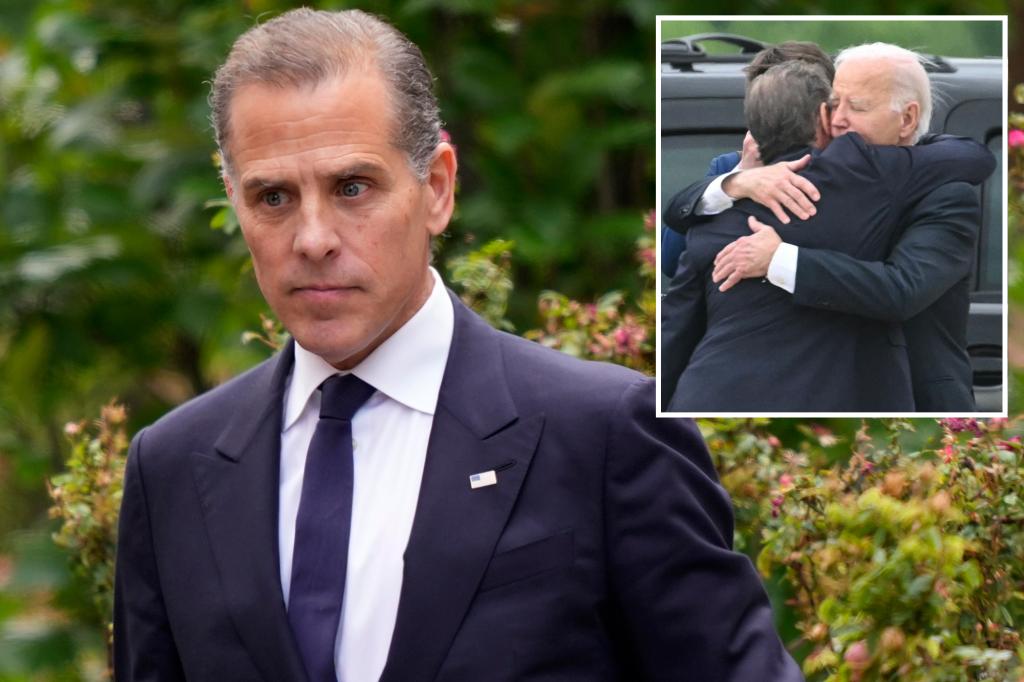Hunter Biden, the son of President Joe Biden, is facing the potential suspension of his law license in Washington, DC after a disciplinary agency filed a notice of discipline with the DC Court of Appeals. This move comes in response to Hunter’s recent felony convictions, with the DC bar considering any felony to be a serious crime. The court has the power to immediately suspend an attorney’s license, regardless of any appeals that may be pending. Although Hunter graduated from Yale Law School in 1996 and was admitted to the DC bar in 2007, he has not actively practiced law in the nation’s capital.
Despite his lack of active legal practice in DC, Hunter maintains his membership in the bar as an “active” member in “good standing” and pays $331 annually for this privilege. While his official status within the legal community remains intact, the recent felony convictions have raised concerns about his ability to continue practicing law. Hunter’s legal troubles began with a Delaware jury finding him guilty of three felony counts related to falsifying information about his crack cocaine addiction on a government form in order to purchase a firearm. Additionally, he faces multiple felony charges in California for tax evasion, allegedly avoiding over $1 million in income taxes.
Hunter’s legal issues extend beyond the realm of professional misconduct, as they also touch upon allegations of financial impropriety and dishonesty. His lawyer has yet to comment on the situation, leaving the public to speculate on Hunter’s future in the legal profession. This development serves as another chapter in the ongoing controversies surrounding the Biden family, with Hunter’s personal troubles creating additional scrutiny for the President and his administration. As the disciplinary process unfolds, the fate of Hunter’s law license and his ability to practice law in DC remain uncertain.
The potential suspension of Hunter Biden’s law license raises questions about the ethical standards and conduct expected of legal professionals, regardless of their personal circumstances. The legal community’s response to Hunter’s situation reflects a commitment to upholding the integrity and reputation of the legal profession, which requires members to adhere to the highest ethical standards. The disciplinary process serves as a mechanism for holding attorneys accountable for their actions and ensuring that they uphold the values of professionalism and integrity that are central to the practice of law.
While Hunter Biden’s legal troubles have gained significant media attention and public scrutiny, they also shed light on broader issues related to ethics and accountability within the legal profession. The handling of disciplinary cases involving high-profile individuals like Hunter serves as a test of the legal system’s ability to maintain transparency and fairness in its decision-making processes. As Hunter grapples with the potential loss of his law license, the implications of his actions extend beyond his individual circumstances to encompass larger questions of ethics, responsibility, and trust in the legal profession. Ultimately, the outcome of his disciplinary case will impact not only his professional future but also the public’s perception of the legal system’s ability to uphold its ethical standards.


